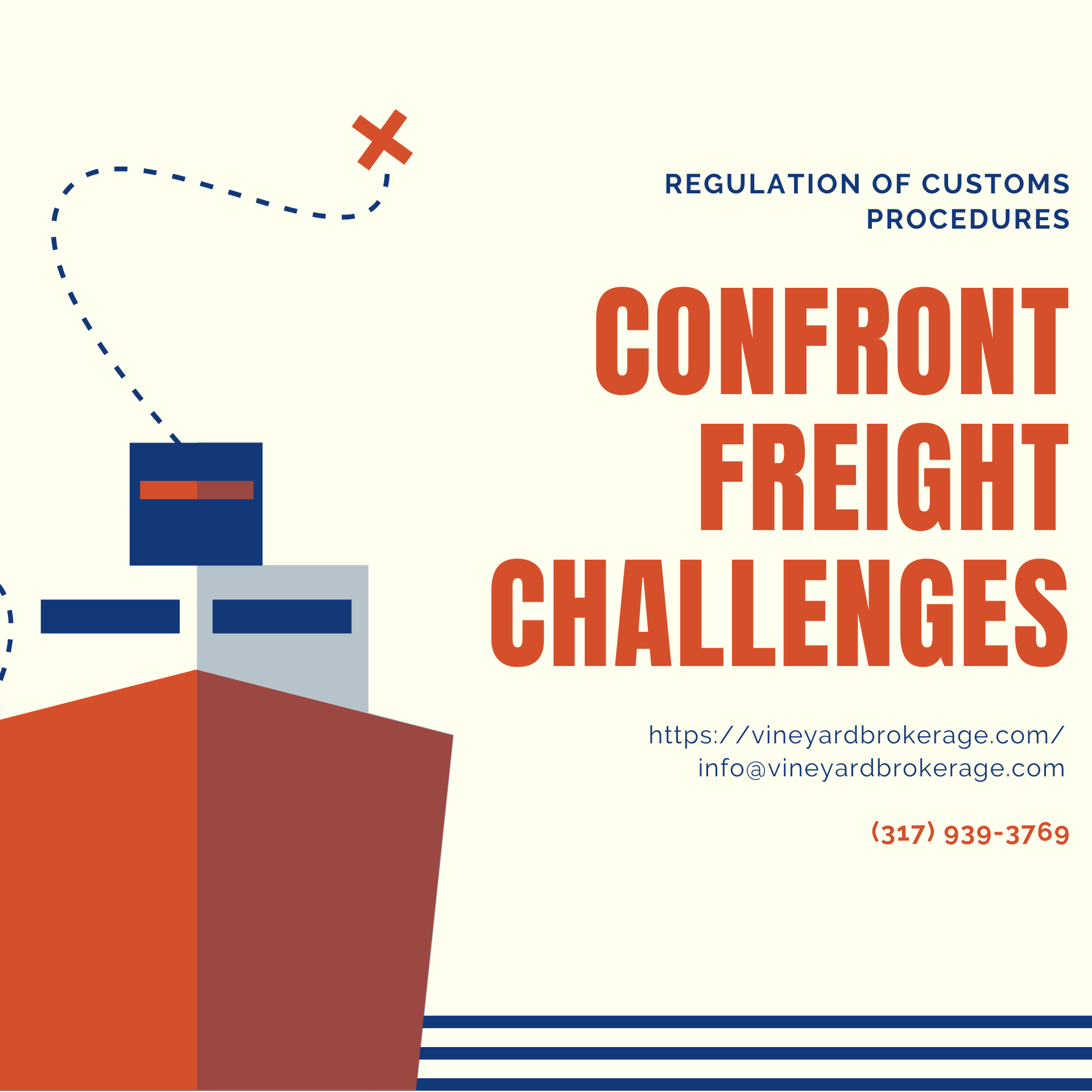How to Confront Freight Challenges on the Border

Don’t let cross-border transport issues hold you!
Many international shippers face a variety of difficulties due to the increasingly sophisticated
and complex structure of the global supply chain. Cross-border shippers may transform
these difficulties into an advantage by conducting thorough analyses of the problems
plaguing their supply chains, strictly adhering to all applicable rules and regulations, and
making the most of opportunities to improve operational efficiencies.
Carriers and shippers encounter daily challenges that can often be avoided with knowledge
and the assistance of a reliable third-party logistics provider.
In the interest of information dissemination, let’s examine in further detail some of the most
typical problems encountered by international shipping companies. Far better, let’s discuss
how to prevent falling into these traps.
The Realities of International Shipping
The United States serves as a major transnational transportation hub. There are a lot of daily
cargoes because of its strategic position between the two largest trading partners in North
America, Canada and Mexico. Many are making the trek to Canada. Some of the other
cargoes are going south to Mexico.
The United States is instrumental in facilitating the vast bulk of these transports.
Nearly $700 billion in goods are exchanged annually alone between the United States and
Canada. A total of $650 billion is exchanged annually in goods and services between the
United States and Mexico.
As a result, each year the United States exports goods worth more than a trillion dollars to
these two nations. That’s a lot of money, but there’s also a lot of room for error,
sluggishness, and even health problems.
Shipping goods across international borders is fraught with red tape. Shipping goods to a
subsidiary in Mexico or Canada is still considered international commerce even when the
parent firm is situated in the United States. Moving goods between international offices of
the same firm requires several forms, declarations, and other documentation.
Many of these bigger firms with overseas branches rely on the services of a third-party
logistics company to lessen the likelihood of freight delays and alleviate a great deal of
stress. For foreign shipments, the 3PL is responsible for all documentation management
and, in many circumstances, the whole transportation of freight. However, there are still a
few issues that are inherent to all international shipping.
Tariffs
Tariffs are levied by countries as a kind of tax on the privilege of exporting goods and
services to domestic consumers and companies. Shippers have ongoing difficulty with tariffs
since many nations use tariff discussions as a political tool to get favorable terms for their
citizens and the companies that contribute to their governments via taxes.
A trade war between Canada, the United States, and Mexico was a real possibility from
2016 until late 2019.
Politicians from all three nations agreed to form the United States, Canada, and Mexico Free
Trade Agreement at the end on July 1, 2020.This altered the handling of tariffs or threats of
duties considerably and, in principle, facilitated more rapid cargo transport across the three
nations.
Regulation of Customs Procedures
Protecting its citizens is a primary responsibility for every North American nation. Customs
enforcement is an integral part of the safety net provided to citizens in the United States,
Canada, and Mexico.
Each of the North American nations has its own customs agency with its own set of rules
about what may and cannot be sent into the country. Food is one such commodity that might
potentially be contaminated with germs or other toxins.
If a shipper wants to minimize freight delays, they need to familiarize themselves with the
customs regulations of each nation they want to ship to.
Regulation Issues
Rising regulatory issues with the importation of goods based on food and medicine are
another area of worry for shippers with U.S. locations. The kind of goods that may be
imported into each nation are subject to their unique set of rules. The freight cannot enter the
country if the shipper’s goods do not adhere to the regulatory framework there.
If you boil it down to its most basic components, any business that does not confront these
issues head-on or does not understand how to successfully handle cross-border
transportation will have serious issues with the global supply chain.
Many forward-thinking organizations managed their cross-border shipments using the
expertise of 3rd party logistics firms to prevent these problems. A cross-border shipping
specialist like Vineyard Brokerage can expedite your shipping requirements, whether you’re
importing or exporting goods to Canada or Mexico.
Vineyard Brokerage
Get in touch with Vineyard Brokerage right away if you’re interested in finding out more
about how we can facilitate your international shipment and alleviate some of the most
typical difficulties you’ll encounter.
With you every mile of the way!

